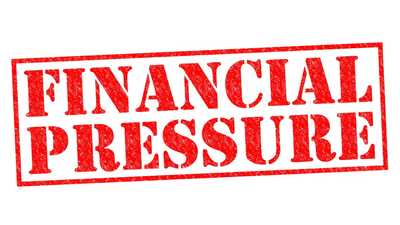| Home | About | Archives | RSS Feed |

The Independent Investor: Reverse Mortgages
 |
Some Baby Boomers have found themselves financially between a rock and a hard place. Rising costs, insufficient retirement savings and, in some cases, health issues, have forced seniors to consider taking out a reverse mortgage on the only asset they own. Is it a good idea?
For those who don't know, a reverse mortgage is a loan that uses a primary residential dwelling as collateral. It provides an option to generate cash by borrowing money against their home equity. Funds can be drawn as a fixed monthly payment, or a line of credit.
In order to participate, at least one owner must be over 62 years old. The bank or financial entity figures out what the house is worth at the time of the loan and lends the borrower a percentage of that number. As an example, if the market price on the home is $350,000, the bank or mortgage lender may front you $275,000.
The borrower then receives a payment (usually monthly) until the amount of equity (in this case, $275,000) in the loan is gone. Unlike a traditional mortgage, however, the amount a borrower owes on a reverse mortgage increases over time. No repayments are required during the borrower's lifetime. Payment is only due when the homeowners die or are no longer living in the property (over the past 12 months).
Over one million reverse mortgages or Home Equity Conversion Mortgages (HECM) have been sold since the government program started back in 1990. The program is run by HUD and over 90 percent of these mortgages are insured by the Federal Housing Administration (FHA). One important reason reverse mortgage are sought after, according to government statistics, is that one-third of U.S. households have nothing saved, while the remaining two-thirds have less than $75,000 in retirement funds. But the program has had its fair share of controversy.
Reverse mortgage scammers abound. Over the years there have been several scandals, including one where more than $1 million of reverse mortgage proceeds from seniors was stolen by a Florida title insurance company. The Consumer Finance Protection Bureau fined three companies a total of $790,000 a few years back for alleged false claims. It is a market where the buyer must beware and therefore borrowers should seek out and do business with the most reputable firms.
One important requirement of taking out a reverse mortgage is the borrower's responsibility of continuing to pay property taxes and maintain the condition of the home. There have been many instances of seniors who were forced into foreclosure prematurely for failing to satisfy one or both of these conditions. Unscrupulous marketers conveniently neglected to inform them of this fact.
The pros of reverse mortgages are fairly obvious. If you are one of the elderly, like my widowed mother-in-law, who was left with little to nothing by her spouse, a reverse mortgage may be your only option to make ends meet. Of course, she could have sold her home, but that is something the majority of seniors are loathed to do. They want to age in place, especially after the loss of their loved one.
She had no income outside of Social Security, so she could not refinance her home. It is true that her heirs (two adult sons and a daughter) would need to repay the loan in order to inherit her home, but two out of the three siblings live elsewhere and have no interest in the house. The reverse mortgage payments are also tax-free, which means a lot of savings when you are on a fixed income.
If, on the other hand, you are retired, but have sufficient income to pay your bills, or are willing to sell your home, either to down-size or to tap into the equity of your house, then reverse mortgages don't make a lot of sense. However, for many of us facing the unknown future of advanced age, the option of taking out a reverse mortgage on what, for most, is our largest asset as a last resort, may be comforting.
There is one caveat, though. If you are contemplating a reverse mortgage and you own a condominium, you are out of luck, unless that condo is FHA-insured. Few, if any condos, in my town, anyway, have ever applied for FHA approval, which is both short-sighted and a major oversite by this region's developers.
In my next column, I examine another type of reverse mortgage that could be a big help in dealing with the one nightmare of all elderly Americans. The fear that without much, if any, long-term care insurance, seniors will end up living in some squalid Medicaid-approved nursing home, depleted of all their assets, while their homeless spouse bags groceries at the local supermarket to survive.
Bill Schmick is registered as an investment adviser representative and portfolio manager with Berkshire Money Management (BMM), managing over $400 million for investors in the Berkshires. Bill's forecasts and opinions are purely his own. None of the information presented here should be construed as an endorsement of BMM or a solicitation to become a client of BMM. Direct inquiries to Bill at 1-888-232-6072 (toll free) or email him at Bill@afewdollarsmore.com.

